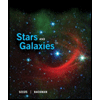
Conceptual Integrated Science
3rd Edition
ISBN: 9780135197394
Author: Hewitt, Paul G., LYONS, Suzanne, (science Teacher), Suchocki, John, Yeh, Jennifer (jennifer Jean)
Publisher: PEARSON EDUCATION (COLLEGE)
expand_more
expand_more
format_list_bulleted
Concept explainers
Question
Chapter 21, Problem 33TIS
To determine
Whether there is an energy loss during
Expert Solution & Answer
Want to see the full answer?
Check out a sample textbook solution
Students have asked these similar questions
The rectangular loop of wire shown in the figure (Figure 1) has a mass of 0.18 g per centimeter of length and is pivoted about side ab on a frictionless axis. The current in the wire is 8.5 A in the direction shown. Find the magnitude of the magnetic field parallel to the y-axis that will cause the loop to swing up until its plane makes an angle of 30.0 ∘ with the yz-plane. The answer is .028 T, I just need help understanding how to do it. Please show all steps.
A ray of light from an object you want to look at strikes a mirror so that the light ray makes a 32 degree angle relative to the normal line (a line perpendicular to the surface of the mirror at the point where the ray strikes the mirror). If you want to see the object in the mirror, what angle does your line of sight need to make relative to the normal line? Give your answer as the number of degrees.
Suppose you have a converging lens with a focal length of 65 cm. You hold this lens 120 cm away from a candle. How far behind the lens should you place a notecard if you want to form a clear image of the candle, on the card? Give your answer as the number of centimeters.
Chapter 21 Solutions
Conceptual Integrated Science
Ch. 21 - What is ecology?Ch. 21 - Prob. 2RCQCh. 21 - What is the difference between a community and an...Ch. 21 - Describe exponential growth. Under what conditions...Ch. 21 - Why do populations that live in unstable...Ch. 21 - Describe logistic growth. Under what conditions do...Ch. 21 - What are the differences between Type I, Type II,...Ch. 21 - Explain how global human population size is...Ch. 21 - What is the age structure of a population? What...Ch. 21 - Prob. 10RCQ
Ch. 21 - What is the name for a diagram of who eats whom in...Ch. 21 - Explain the difference between a producer and a...Ch. 21 - What is a decomposer? What organisms function as...Ch. 21 - Can two species have the exact same niche in a...Ch. 21 - Define parasitism, and provide some examples.Ch. 21 - How does primary succession differ from secondary...Ch. 21 - Why are the later colonizers of a habitat...Ch. 21 - What usually happens to the total biomass in an...Ch. 21 - How can regular disturbances contribute to the...Ch. 21 - Prob. 20TISCh. 21 - Prob. 21TISCh. 21 - Which biome includes more living things than all...Ch. 21 - Prob. 23TISCh. 21 - Prob. 24TISCh. 21 - Prob. 25TISCh. 21 - Prob. 26TISCh. 21 - Prob. 27TISCh. 21 - What role do nitrogen-fixing bacteria and...Ch. 21 - Prob. 29TISCh. 21 - Prob. 30TISCh. 21 - Prob. 31TISCh. 21 - Prob. 32TISCh. 21 - Prob. 33TISCh. 21 - Prob. 38TCCh. 21 - Prob. 39TCCh. 21 - Suppose that you have a logistically growing...Ch. 21 - In a population of songbirds, 100 young are born...Ch. 21 - In a population of insects, 1 million young are...Ch. 21 - Prob. 43TSCh. 21 - Does a community contain multiple populations?...Ch. 21 - Prob. 45TECh. 21 - Prob. 46TECh. 21 - A scientist examines how the presence of a...Ch. 21 - How are exponential growth and logistic growth...Ch. 21 - What factors could cause population growth to slow...Ch. 21 - Prob. 50TECh. 21 - Suppose that the carrying capacity of a specific...Ch. 21 - Prob. 52TECh. 21 - Why is a baby elephant considered an expensive...Ch. 21 - Would you expect a tiger to have a Type I, Type...Ch. 21 - Name an organism that you might see in your...Ch. 21 - The graph below shows survivorship curves for...Ch. 21 - Prob. 57TECh. 21 - Prob. 58TECh. 21 - Prob. 59TECh. 21 - Prob. 61TECh. 21 - Prob. 62TECh. 21 - Prob. 63TECh. 21 - Prob. 64TECh. 21 - Prob. 65TECh. 21 - Prob. 66TECh. 21 - Prob. 67TECh. 21 - Prob. 68TECh. 21 - Prob. 69TECh. 21 - Prob. 70TECh. 21 - Prob. 71TECh. 21 - Prob. 72TECh. 21 - Prob. 73TECh. 21 - Prob. 74TECh. 21 - Prob. 75TECh. 21 - Prob. 76TECh. 21 - Prob. 77TECh. 21 - Prob. 78TECh. 21 - Prob. 79TECh. 21 - Prob. 80TECh. 21 - Prob. 81TECh. 21 - Prob. 82TECh. 21 - Name at least two different processes that return...Ch. 21 - Prob. 84TECh. 21 - Prob. 85TECh. 21 - Prob. 86TECh. 21 - Prob. 87TECh. 21 - If you eat a pound of pasta, will you gain a pound...Ch. 21 - Prob. 89TECh. 21 - How does the Second Law of Thermodynamics help...Ch. 21 - How does the energy lost during cellular...Ch. 21 - Prob. 92TECh. 21 - Prob. 93TECh. 21 - Prob. 94TECh. 21 - Prob. 95TECh. 21 - Two populations of rabbits are growing...Ch. 21 - Two populations of monkeys are growing...Ch. 21 - Prob. 98TDICh. 21 - What type of survivorship curve characterizes...Ch. 21 - Prob. 100TDICh. 21 - Some acacia trees have evolved a special...Ch. 21 - Prob. 102TDICh. 21 - Prob. 103TDICh. 21 - Prob. 104TDICh. 21 - Would you expect to find more Type I or Type III...Ch. 21 - Prob. 1RATCh. 21 - A Type III population is associated with a...Ch. 21 - Prob. 3RATCh. 21 - Prob. 4RATCh. 21 - Prob. 5RATCh. 21 - Prob. 6RATCh. 21 - Prob. 7RATCh. 21 - Prob. 8RATCh. 21 - Prob. 9RATCh. 21 - Prob. 10RAT
Knowledge Booster
Learn more about
Need a deep-dive on the concept behind this application? Look no further. Learn more about this topic, physics and related others by exploring similar questions and additional content below.Similar questions
- Suppose you have a diverging lens with a focal length of - 25 cm. You look through this lens at a sleeping squirrel, and notice that it forms a virtual image of the squirrel with di = - 18 cm. How far away from the lens is the squirrel? Give your answer as the number of centimeters (a positive number).arrow_forwardDiamond has an index of refraction of about 2.4. Suppose you cut a diamond so it has a flat surface, and shine a laser pointer beam so that it makes a 27 degree angle with respect to the normal line to that surface. What angle will the laser beam make with respect to the normal after it passes through the air-diamond boundary and is inside the diamond? Give your answer as the number of degrees.arrow_forwardFind current of each line of D,E, and F. Where V1 is 9V, V2 is 7V, R1 is 989 , R2 is 2160, R3 is 4630 , R4 is 5530, R5 is 6720, and E is 16V. Please explain all steps. Thank youarrow_forward
- You are tasked with designing a parallel-plate capacitor using two square metal plates, eachwith an area of 0.5 m², separated by a 0.1 mm thick layer of air. However, to increase the capacitance,you decide to insert a dielectric material with a dielectric constant κ = 3.0 between the plates. Describewhat happens (and why) to the E field between the plates when the dielectric is added in place of theair.arrow_forwardCalculate the work required to assemble a uniform charge Q on a thin spherical shell of radiusR. Start with no charge and add infinitesimal charges dq until the total charge reaches Q, assuming thecharge is always evenly distributed over the shell’s surface. Show all steps.arrow_forwardRod AB is fixed to a smooth collar D, which slides freely along the vertical guide shown in (Figure 1). Point C is located just to the left of the concentrated load P = 70 lb. Suppose that w= 17 lb/ft. Follow the sign convention. Part A Figure 3 ft -1.5 ft √30° 1 of 1 Determine the normal force at point C. Express your answer in pounds to three significant figures. ΜΕ ΑΣΦ Η vec Nc= Submit Request Answer Part B Determine the shear force at point C. Express your answer in pounds to three significant figures. VC= ΜΕ ΑΣΦΗ vec Submit Request Answer Part C Determine the moment at point C. Express your answer in pound-feet to three significant figures. Mc= Ο ΑΣΦ Η vec Submit Request Answer Provide Feedback ? ? lb lb ? lb-ftarrow_forward
- Consider a uniformly charged ring of radius R with total charge Q, centered at the origin inthe xy-plane. Find the electric field (as a vector) at a point on the z-axis at a distance z above thecenter of the ring. Assume the charge density is constant along the ring.arrow_forward3) If the slider block C is moving at 3m/s, determine the angular velocity of BC and the crank AB at the instant shown. (Use equation Vs Vc wx fuc, then use equation Vs VA + Ve/athen write it in terms of w and the appropriate r equate the two and solve) 0.5 m B 1 m 60° A 45° vc = 3 m/sarrow_forward3) If the slider block C is moving at 3m/s, determine the angular velocity of BC and the crank AB at the instant shown. (Use equation Vs Vc wxf, then use equation V, VA + Va/Athen write it in terms of w and the appropriate r equate the two and solve) f-3marrow_forward
- Pls help ASAParrow_forwardPls help ASAParrow_forward14. A boy is out walking his dog. From his house, he walks 30 m North, then 23 m East, then 120 cm South, then 95 m West, and finally 10 m East. Draw a diagram showing the path that the boy walked, his total displacement, and then determine the magnitude and direction of his total displacement.arrow_forward
arrow_back_ios
SEE MORE QUESTIONS
arrow_forward_ios
Recommended textbooks for you
 Foundations of Astronomy (MindTap Course List)PhysicsISBN:9781337399920Author:Michael A. Seeds, Dana BackmanPublisher:Cengage Learning
Foundations of Astronomy (MindTap Course List)PhysicsISBN:9781337399920Author:Michael A. Seeds, Dana BackmanPublisher:Cengage Learning Stars and Galaxies (MindTap Course List)PhysicsISBN:9781337399944Author:Michael A. SeedsPublisher:Cengage Learning
Stars and Galaxies (MindTap Course List)PhysicsISBN:9781337399944Author:Michael A. SeedsPublisher:Cengage Learning

 Stars and GalaxiesPhysicsISBN:9781305120785Author:Michael A. Seeds, Dana BackmanPublisher:Cengage Learning
Stars and GalaxiesPhysicsISBN:9781305120785Author:Michael A. Seeds, Dana BackmanPublisher:Cengage Learning Horizons: Exploring the Universe (MindTap Course ...PhysicsISBN:9781305960961Author:Michael A. Seeds, Dana BackmanPublisher:Cengage Learning
Horizons: Exploring the Universe (MindTap Course ...PhysicsISBN:9781305960961Author:Michael A. Seeds, Dana BackmanPublisher:Cengage Learning

Foundations of Astronomy (MindTap Course List)
Physics
ISBN:9781337399920
Author:Michael A. Seeds, Dana Backman
Publisher:Cengage Learning

Stars and Galaxies (MindTap Course List)
Physics
ISBN:9781337399944
Author:Michael A. Seeds
Publisher:Cengage Learning



Stars and Galaxies
Physics
ISBN:9781305120785
Author:Michael A. Seeds, Dana Backman
Publisher:Cengage Learning

Horizons: Exploring the Universe (MindTap Course ...
Physics
ISBN:9781305960961
Author:Michael A. Seeds, Dana Backman
Publisher:Cengage Learning
A Level Physics – Ideal Gas Equation; Author: Atomi;https://www.youtube.com/watch?v=k0EFrmah7h0;License: Standard YouTube License, CC-BY